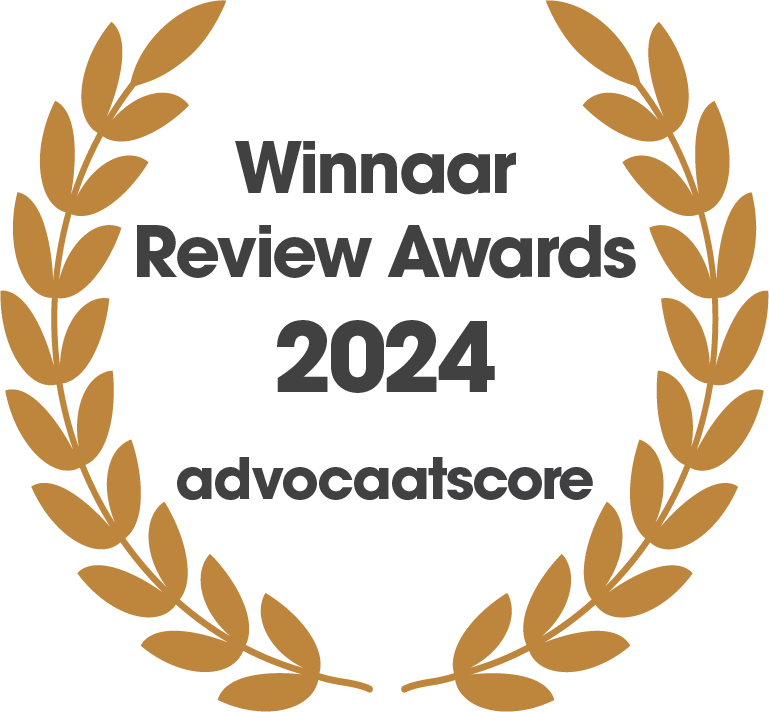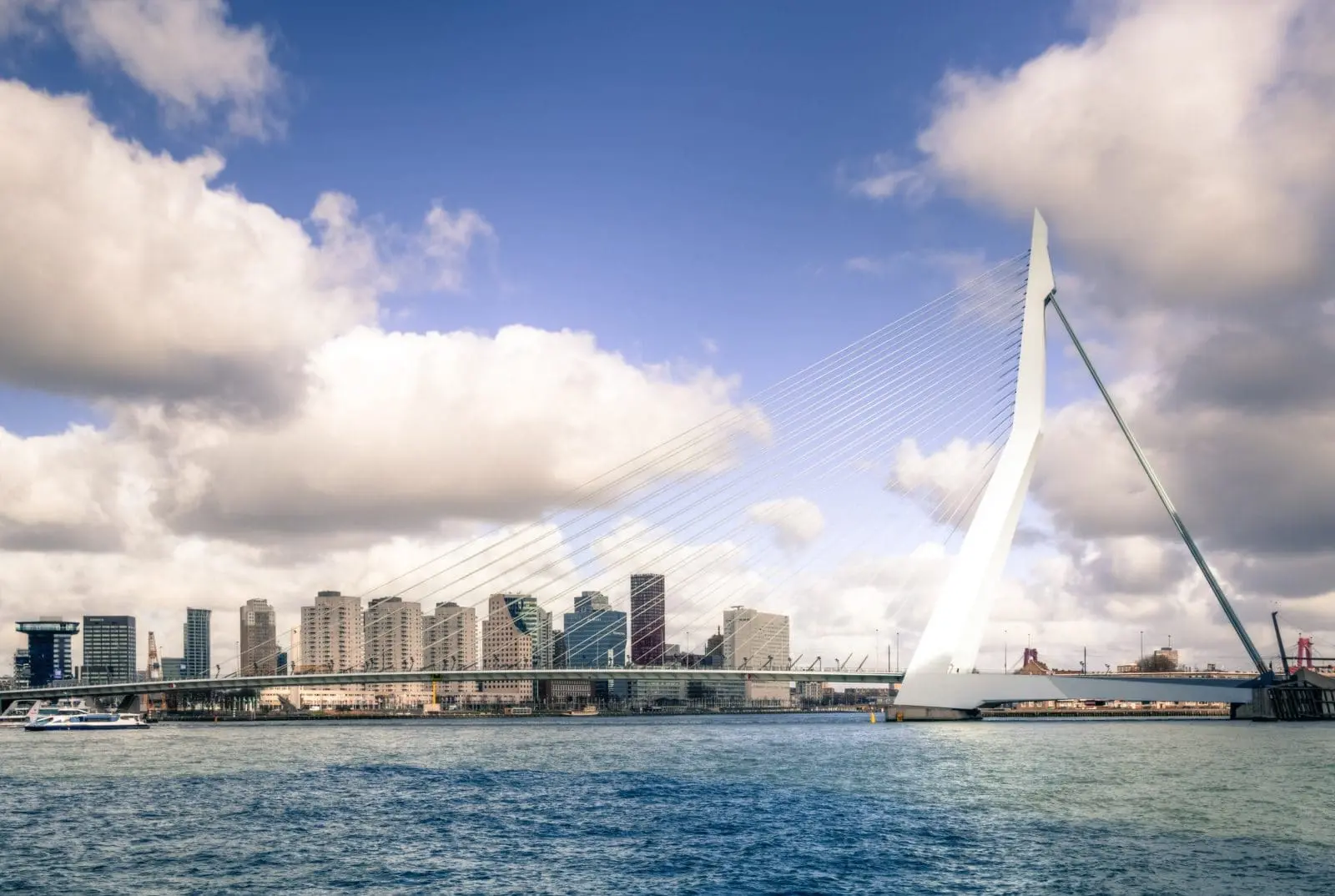
Every year we are in the top 3 of the best law firms in the Netherlands in the field of client satisfaction.

Recognition as an IND sponsor required for highly skilled migrant scheme
A company that wishes to submit applications for MVV-visas and residence permits for highly skilled migrants must be a recognised sponsor. The Immigration and Naturalisation Service (IND) decides on the application for recognition as a sponsor. The recognition means that the IND considers the company to be a reliable partner. The recognised sponsor can use the accelerated admission procedure, which enables a ruling on the application within two to three weeks.
Click here to view the public register in which all recognised sponsors are listed.
The company does not need to be (but can be) a recognised sponsor to apply for an EU Blue Card residence permit or an intra-corporate transfer residence permit (ICT permit). Like the highly skilled migrant residence permit, these two permits are also intended for highly skilled labour migrants. If the company is not recognised as a sponsor, the processing time of the application is between eight and twelve weeks.
IND fees
The IND fee for being a recognised sponsor is € 4,560. There is a rate of € 2,279 for companies that are less than 1.5 years old and companies that employ fewer than 50 employees worldwide.
Application procedure
The application procedure for recognised sponsorship can be divided into two groups:
- A relatively simple procedure for companies that are more than 3 years old.
- a laborious and lengthy procedure for companies that are less than 1.5 years old.
In the case of companies more than 1.5 years old but less than 3 years old, the IND may decide that the company must also follow the laborious and lengthy procedure. This is done if the IND has doubts about the company's continuity and solvency.
1. Company more than 3 years old
Companies more than 3 years old can be recognised as sponsors without an assessment by the Netherlands Enterprise Agency(RVO).
The main conditions are:
- The company is registered with the Chamber of Commerce.
- The company has no overdue social security contributions and payroll taxes
- The company has not been subject to a tax offence penalty or a fine for violation of the Act on Employment of Foreign Nationals, the Minimum Wage and Holiday Allowance Act and the Aliens Act in the last four years prior to the recognised sponsorship application.
- The directors must be reliable. The IND may request a certificate of conduct in this regard.
- The company must not have been declared bankrupt in the last three years.The turnover and profitability of the company.
The IND will rule on these applications within 4 weeks. The legal decision period is 3 months.
2. The company is less than 1.5 years old, or between 1.5 years and 3 years old
The application procedure for companies that are less than 1.5 years old involves a lot more paperwork. It also takes much longer—up to 6 months. The IND does not conduct this assessment itself.
The IND may decide that this procedure also applies to companies that are more than 1.5 years old but less than 3 years old. This happens in most cases, in our experience.
The Netherlands Enterprise Agency (RVO) provides recommendations on these applications. The RVO will assess whether the company's continuity and solvency are sufficiently guaranteed, using the point system outlined below.
The IND always accepts the RVO's recommendations. If the RVO's recommendation is positive, the company will be recognised as a sponsor.
The RVO's recommendation will be positive if the company obtains sufficient points. A total of 100 points can be obtained. Only 50 points are required for a positive recommendation.
RVO preliminary test
Before assessing the content of the application, the RVO conducts a preliminary test to determine whether:
- The company is registered in the Chamber of Commerce (if it is not, the RVO will not issue a recommendation).
- There has been a change in the company's shareholder structure.
- There is or has been a takeover, suspension of payments or bankruptcy.
Suppose there has been a change in the shareholder structure or a takeover, suspension of payments or bankruptcy of the company. In that case, the company will have to explain and clarify the matter with documentation. Without clarification, the RVO will not proceed with the substantive assessment.
Suppose there has been a change in the shareholder structure or a takeover, suspension of payments or bankruptcy of the company. In that case, the company will have to explain and clarify the matter with documentation. Without clarification, the RVO will not proceed with the substantive assessment.
In a substantive assessment, the RVO will assess the continuity and solvency of the company.
What documents must be submitted?
- Business plan: In any case, the business plan must address the product or service being offered. It must discuss the characteristics, application of the product and service, needs and unique selling points (maximum 15 points). In addition, a market analysis must have been carried out, detailing, among other things, potential customers, competitors, risks and entry barriers (maximum 25 points). As such, a total of 40 points can be obtained for this component.
- Organisation: The RVO will assess whether the company has a clear and adequate organisation structure. The assessment also includes the directors/owners' competencies in entrepreneurship, management, and the product or service being sold (maximum 20 points).
- Financial plan: The financial plan must have been drawn up or approved by an independent auditor or accountant. The financial plan must include a balance sheet (maximum 15 points), a turnover forecast that is plausible and consistent with the market analysis (maximum 10 points), and a liquidity forecast for the next three years (maximum 15 points).
- Balance sheet: The balance sheet must, in any case, show assets in excess of €50,000, or 0 points will be awarded. If the balance sheet shows assets of up to €250,000, a maximum of 10 points will be awarded. If the assets exceed €250,000, a maximum of 15 points will be awarded. The company's solvency will determine whether or not the maximum number of points will be awarded. The maximum number of points will be awarded for a solvency ratio of more than 50%.
- Turnover: For a turnover of €500,000, the maximum of 10 points will be awarded. If the turnover is less than €125,000, 0 points will be awarded; if the turnover is between €125,000 and €250,000, 3 points, and if the turnover is between €250,000 and €500,000, 7 points will be awarded.
- Liquidity forecast: The cash flow must be positive within 3 years. 0-15 points may be awarded for this component.
Netherlands Foreign Investment Agency (NFIA) letter of acknowledgement
The laborious and lengthy application procedure for newly established companies described above can be considerably simplified if the Netherlands Foreign Investment Agency (NFIA) has been involved in setting up the company in the Netherlands. These cases always concern a foreign company establishing a subsidiary in the Netherlands. In that case, the NFIA may issue a declaration of acknowledgement.
With a declaration of acknowledgement, the IND decides on the application for recognition as a sponsor. The RVO is not asked for recommendations, and the point system is not applied. The IND will make a decision within four to five weeks. This is roughly the same decision period used for companies that are more than 1.5 years old.
Company formed by merger, acquisition or change of legal form
In addition to the NFIA letter of acknowledgement mentioned above, there are four other cases in which a company that is less than 1.5 years old does not have to submit a business plan and financial plan with its application for recognised sponsorship. This is the case if:
- The company is a wholly-owned subsidiary of a company that has already been recognised as a sponsor by the IND.
- The company is the result of a merger, and both merged companies are recognised sponsors.
- The company has been acquired by a company that is a recognised sponsor.
- The legal form of the company that has been recognised as a sponsor has changed, and the notarial deed shows that the nature of the company's activities has not been extended and control of the new company or legal entity remains the same.
Withdrawal of recognised sponsorship due to low numbers of highly skilled migrant applications
The company may lose its status as a recognised sponsor if it makes insufficient use of the highly skilled migrant scheme.
The IND may withdraw the recognised sponsorship if the company has not submitted a single application for a highly skilled migrant for three years and no longer has any highly skilled migrants in employment. The three-year term is calculated from the date of recognition.
